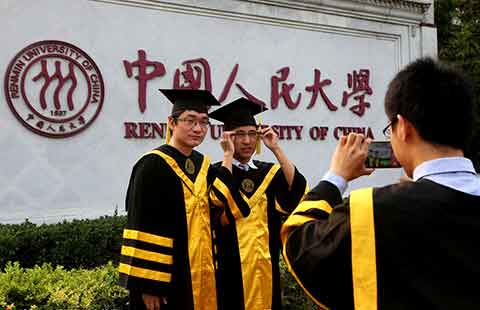It's time to move beyond dispute over RMB exchange rate
(Xinhua) Updated: 2011-12-28 15:40BEIJING - In its latest report, the US Treasury Department on Tuesday declined to name China as a currency manipulator, sending out a clear and positive signal that would soothe the market and benefit bilateral and world trade.
The RMB exchange rate has been a major source of dispute between China and the United States over recent years.
Though a trade problem in nature, the RMB exchange rate issue has been politicized over and over again in Washington and targeted by political candidates in various election campaigns from time to time.
However, the politicizing of the RMB issue proved to be both energy consuming and uneconomical. Moreover, it hurts the economic and trade cooperation which is one of the cornerstones of Sino-US relations.
Over the years, the two nations have made huge progress in trade ties, and now they are each other's second-largest trade partner. There is even bigger potential to explore in decades to come.
From a global perspective, as emerging economies including China are playing an increasingly important role in world trade and finance, the shift of power balance sometimes led to frictions and readjustments.
What is needed in such a process is active negotiation and coordination instead of negative response such as clash and containment.
On the issue of the RMB exchange rate, China's policies, measures and orientation are crystal clear, and the outcome is obvious as well.
Compared to six years ago when China started its currency rate reform, the RMB has appreciated against the US dollar by over 22 percent.
Figures from the US side showed that the RMB went up 40 percent in value against the US currency on a real basis in the past five years if inflation is not factored in.
They also point to the fact that appreciation of the Chinese currency is not a solution to Washington's chronical woes such as trade deficits.
Just like the process of China's economic development, the RMB exchange rate reform and the internationalization of the RMB will be a gradual and long-term process. Pushing for a sharp rise or decline in exchange rate or seeking an once-for-all solution would be both unrealistic and harmful.
Therefore, it is time to move beyond the useless, meaningless quarrel over the exchange rate and look to the broader picture and new areas for both bilateral and global trade cooperation.
In that sense, the US Treasury report sent out a positive signal.
- China Caixin manufacturing PMI slumps to 48.6
- China's current account surplus to stay despite sharp drop
- Chinese company Hisense reaps benefits from Euro 2016 sponsorship
- Mercedes-AMG races ahead in China's auto market
- Commerce ministry urges G20 members to back trade facilitation agreement
- Govt expresses positive attitude on free trade agreement talks with the UK
- China's Huawei ranks 1st in brand power in Myanmar: report
- Chinese buyers agree AC Milan stake


















